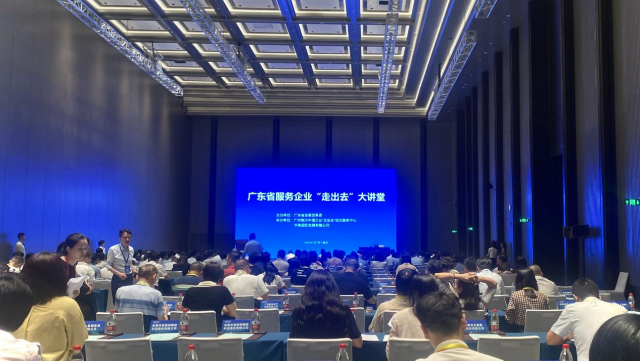From July 24 to 25, an ASEAN-focused seminar on supporting Guangdong enterprises to go global was held in Nansha District, Guangzhou, attracting around 140 enterprises to discuss cooperation prospects between Guangdong enterprises and the ASEAN market.

Zhu Wei, Deputy Director of the Guangdong Provincial Development and Reform Commission and Executive Deputy Director of the Guangdong-Hong Kong-Macao Greater Bay Area Development Office, emphasized that the globalization of Chinese products, technologies, business models, and management experience can not only promote global economic, trade, and investment connectivity but also stabilize supply chains and inject new vitality into the world economy.
Zhu highlighted that if enterprises want to progress steadily, they need to uphold the concept of win-win cooperation: implement localization strategies by respecting local cultures and consumption habits; seek international cooperation to share resources and technologies; and fulfill social responsibilities to integrate into local markets and gain support.
ASEAN's vast consumer market attracts Guangdong enterprises
ASEAN is Guangdong's largest trading partner. In the first half of 2025, Guangdong's import and export volume with ASEAN reached 757.13 billion yuan, up by 5.9%. It accounted for 16.6% of the province's total foreign trade, with the proportion increasing by 0.3 percentage points compared to the same period last year.
"Currently, when Chinese enterprises venture abroad, Hong Kong is often their first stop as it serves as an important overseas platform. After establishing this platform, their second stop usually turns to Southeast Asia, which has a large population base," said Huang Hao, head of the "Going Global" Comprehensive Service Center for Chinese Enterprises.
Huang mentioned that a relatively large number of Guangdong manufacturing enterprises have recently gone overseas, mainly consisting of small and medium-sized enterprises. In terms of outbound direct investment amounts, reinvestments by enterprises that have already gone overseas and large-scale projects led by state-owned enterprises are the main contributors.
Localization strategy emerges as a new cooperation model
As a biomanufacturing enterprise mainly engaged in producing starch sugar and polyols using corn as raw material, Zhaoqing Huanfa Biotechnology has an annual output value exceeding 2 billion yuan and is a strategic cooperation supplier for international brands such as Procter & Gamble, Unilever, and Colgate.
"We have been trading with Southeast Asia for five years, with an average annual growth rate of 10%-20%. Our clients cover Malaysia, Vietnam, the Philippines, Thailand, Myanmar, and other places. We even reach out to the Mexican and African markets through Southeast Asia," said Chen Jingfeng, the company's Chairman Assistant.
This year, Hufa Biotechnology will construct a production base in the Selangor Industrial Park in Malaysia. Chen revealed that the base will serve as a strategic overseas hub for research and development and deep-processing operations, with plans to further expand into the global market using Malaysia as a pivot.
Reporter & Photo | Chen Jinxia
Editor | Hu Nan, James, Shen He






